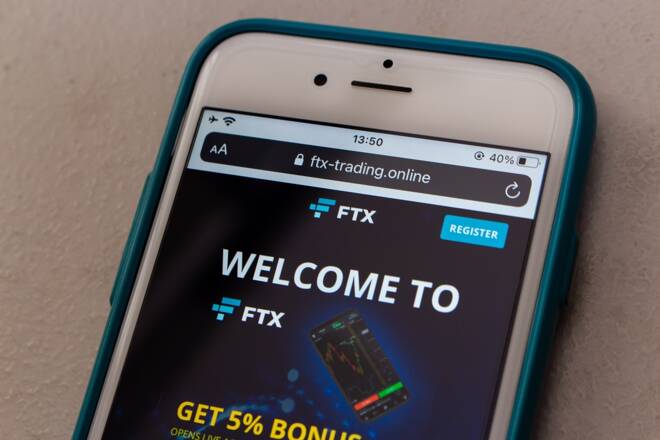Advertisement
Advertisement
FTX U.S. Seeking Derivatives Brokerage License in Goldman Sachs Tie-up
By:
Goldman Sachs is in talks with the U.S. branch of the FTX cryptocurrency exchange to onboard some of its derivatives products.
Key Insights:
- FTX wants to become a “futures commission merchant” to handle derivatives in-house.
- Goldman is considering integrating some of the crypto exchange’s products.
- U.S. regulators are highly skeptical about the deal and anything crypto-related.
Goldman Sachs is in talks with the U.S. branch of the FTX cryptocurrency exchange to onboard some of its derivatives products.
Citing a ‘person familiar with the matter’ on June 1, Barron’s reported that FTX is seeking a license modification from the Commodity Futures Trading Commission (CFTC). The upgraded license will allow the exchange to act as an intermediary for leveraged derivatives trading, it added.
The exchange will handle the collateral and margin requirements internally when borrowed money is used for trading. Currently, brokerages acting as “futures commission merchants” (FCMs) fulfill this role.
FCM Ambitions
Derivatives are financial contracts between two or more parties deriving their value from an underlying asset, cryptocurrency, in the case of FTX (FTT). They can consist of futures, options, forwards, and swaps.
Goldman (GS) is one of the FCMs in talks with FTX as they are warming to what the exchange offers, according to FTX US president Brett Harrison, who told the outlet:
“We have multiple FCMs already committed to integrating technologically with the exchange. There are several large ones you can probably name.”
Goldman’s integration with FTX could introduce several additional services, another person familiar with the matter said. These could include “trading futures directly, introducing clients and acting as an on-ramp to the exchange, or providing capital top-ups for clients,” they added.
There could be regulatory pushback, however. Major U.S. financial regulators, the CFTC and the SEC (Securities and Exchange Commission) are very skeptical of digital assets and any exchanges that deal with them.
The CFTC has previously said that FTX’s ambitions to become a FCM warrant scrutiny. The firm’s proposal to integrate derivatives trading in-house threatens a market dominated by large investment banks such as Goldman.
Market Volatility Concerns
The Futures Industry Association, which represents derivatives brokerages, said the FTX proposal could “exacerbate financial instability in a time of heightened market volatility.”
Highly leveraged traders have been blamed for the huge price swings and volatility in crypto markets. Significant events can cause a cascade of leveraged trades being liquidated, which dumps the underlying asset’s price very quickly.
FTX argues that the proposed integrated derivatives model would improve market stability. It holds customer collateral, calculates margin requirements every 30 seconds, and automatically liquidates positions rather than waiting overnight.
It claims that the system has been “battle-tested” on its international exchange, which has much higher volumes and liquidity than the U.S. version.
FTX.US currently has around $200 million in daily spot trade volume, whereas the international exchange has closer to $2 billion according to CoinGecko.
Harrison believes that the FTX model would free up capital for brokerages acting as FCMs, leading to more significant revenues.
About the Author
Martin Youngauthor
Martin has been covering the latest developments in the blockchain and digital asset industry since 2017 when he made his first investment. He has previous trading experience and has worked extensively in IT over the past 2 decades.
Advertisement
